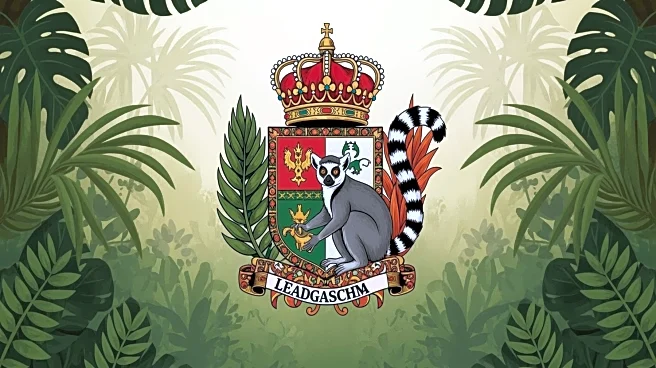What's Happening?
Former Madagascar President Andry Rajoelina has been stripped of his citizenship following a military coup that ousted him from power. The new government, led by Prime Minister Herintsalama Rajaonarivelo, invoked laws that remove citizenship from Madagascans
who hold another nationality. Rajoelina, who also holds French citizenship, fled the country amid protests demanding his resignation. The protests, initially sparked by issues such as water and electricity shortages, escalated into broader discontent over poverty and unemployment. The military takeover has resulted in Colonel Michael Randrianirina being sworn in as the new president.
Why It's Important?
The political upheaval in Madagascar highlights the ongoing instability in the region, which has experienced multiple coups since gaining independence in 1960. The stripping of Rajoelina's citizenship raises questions about the legal and ethical implications of dual nationality in political leadership. This development could impact Madagascar's international relations, particularly with France, and may influence future governance and policy decisions. The situation underscores the challenges faced by countries with fragile political systems and the potential for unrest to disrupt governance and economic stability.
Beyond the Headlines
The removal of Rajoelina's citizenship could set a precedent for how dual nationality is treated in political contexts, potentially affecting other leaders with similar backgrounds. The military's role in the transition of power raises concerns about the future of democracy in Madagascar and the potential for further unrest. The international community may need to consider its response to ensure stability and support democratic processes in the region.















